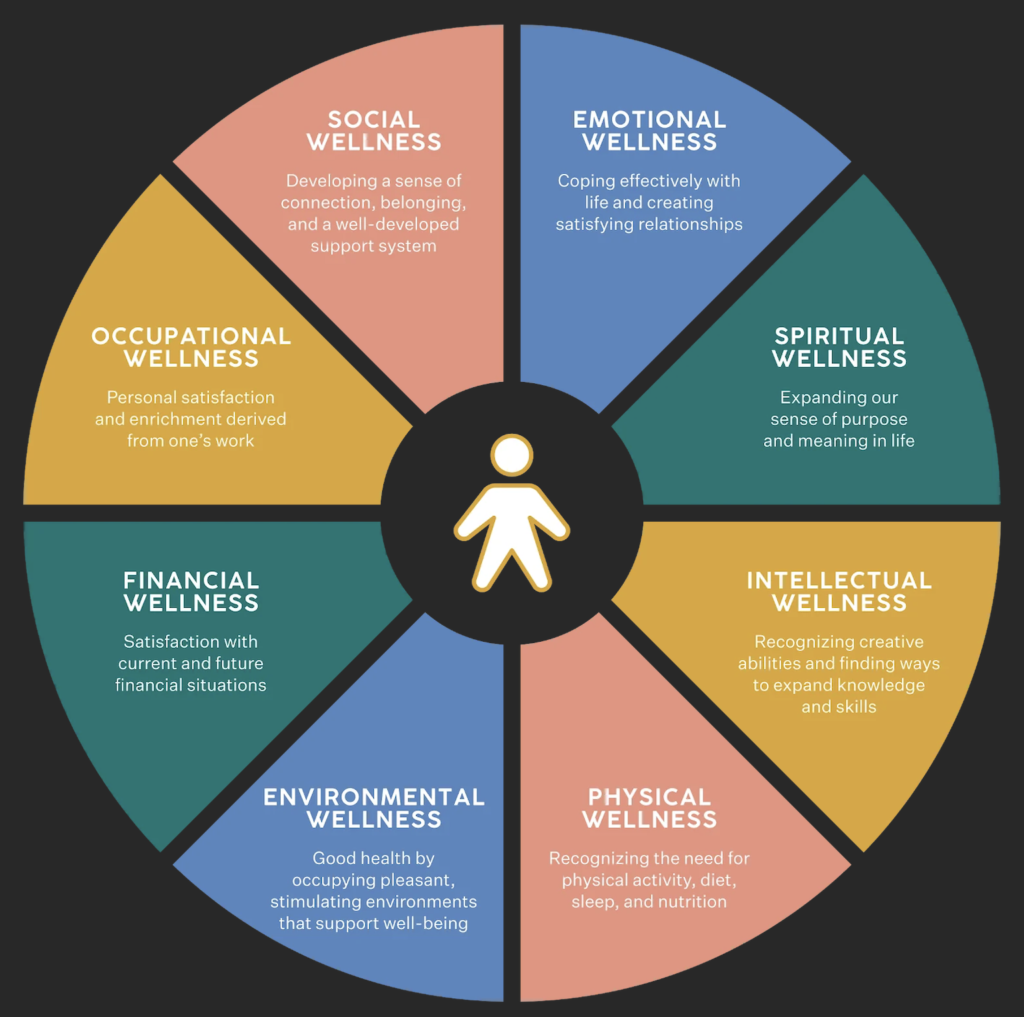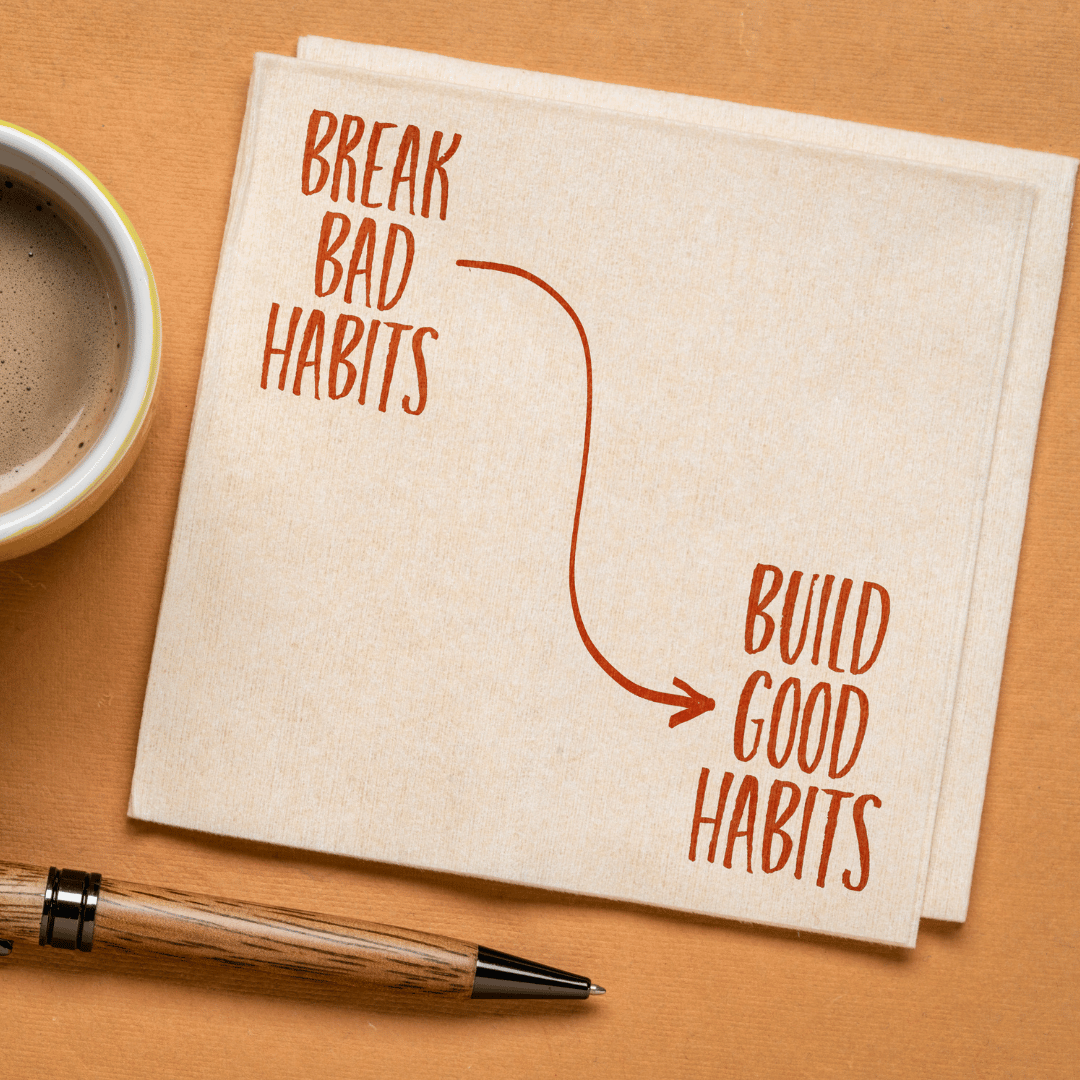Have you ever set a goal for yourself or began a “healthy” habit only to fall off track a couple weeks or several months later? If you are human, I am sure you have experienced this situation at least once in your life. January is just around the corner, and this is generally the time when people scramble to formulate their new life changing habits for the year ahead. Stereotypically so…
Whether you are a “New Year’s resolution” type of person or not, let’s set the scene in terms of what this conversation might look like in a therapeutic environment. Here is a therapist’s take on habits and goals.
Creating Habits
Regardless of the time of year if you could sense my previous sarcasm, goal setting and creating habits is a standard topic of discussion that a client usually communicates during the beginning stages of therapy. Goal setting is typically an exciting initial conversation to be had between a therapist and the client because it gives the client a sense of eagerness through hope, habits, and self-improvement.
For example, I have heard many clients state goals on how they would like to improve their overall mental health state by reducing symptoms of anxiety and/or depression. Another goal I often hear from a client is how to formulate healthy habits to better cope with stress.
Connecting Goals to Habits
In my experience as a therapist, I have observed many clients that are quick to state their goals with enthusiasm. However, through the organic flow of conversation I have also noticed that these goals stated by various clients lack habits. Simply thoughts to words with no action. And that is okay. That is what our counselors are here for when you may feel that you are at a roadblock!
When I ask the client how he or she intends to see their goals play out in real time, I can sometimes feel the anxiety creep in or other emotions begin to rise within the client. And that is okay too. You are not alone. So how does a client bridge this gap of thoughts to actions? Or more specifically goals to habits?
Taking Habit Inventory
The first thoughts that come to mind, and the questions I begin to ask clients as a therapist are, “How do we put these goals into habits?” “How are you realistically going to achieve this goal?”
“What habits do you already have in place to make this goal actually attainable?” “How has this worked for you in the past?” I always like to check in with the client to see what “tools” are already in the toolbox. No need to totally reinvent the wheel if not necessary.
If there are no habits in place or other habits of the past have not been successful, no worries. I would simply ask, “What are some potential new habits you can implement now to progress towards achieving this goal?” Alright moving on.
Preventing Habit Burnout
As a therapist, the most common themes I hear in conversation from a client as to why they cannot achieve their goals or why they cannot stick to their habits is because they run out of motivation. Sure, motivation is hard to maintain, especially if you feel aimless or are exhausted. Some goals may seem like a mountain to climb, so to speak. Or maybe there are too many options that leave a client aimless in achieving their goals. A loss of motivation due to experiencing burnout or due to having too many options. Understandable.
Now this leads me to another question, “How are you going to approach your goals through your habits in a manner that is more simplistic and in a manner that also prevents you from burning out?”
As a therapist, I believe in working smarter, not harder. How can we set a client’s goal, thus habits, up for success from the start?
There are certain areas of a client’s life that need to be zoomed in on in order for the goals and habits to be maintained and secured for the long run. Habits need to be specific, purposeful, and simple.
Wellness Wheel
What I mean by areas of a client’s life, are areas of wellness. These areas can be captured through the wellness wheel.

In general, areas of wellness include: emotional, spiritual, physical, social, intellectual, financial, occupational, and environmental wellness. I love to introduce the wellness wheel to ensure that the client and I are considering all parts of a client’s life that might contribute to their goals and habits.
As a therapist, I will ask, “Based on the goal that you have expressed. Based on your habits you communicated to get you to your destination or goal… Let’s zoom in a little more. What areas of your wellness do you think need to be considered in more detail to promote a higher success rate in carrying out your goals and habits?
Making Habits Stick
Now let’s put this all together. Let us take a look at how a therapist can help facilitate habits through pragmatic habit-building questions.
Let’s say a client has a goal to implement healthier ways to cope with stress. They plan to do that partly through exercise but haven’t succeeded in the past. Below are some habit building questions I would ask to help my client better understand their goals.
Habit Building Questions
- What habits do you already have in place to make this goal actually attainable?” “How has this worked for you in the past?
- What are some potential new habits that you can implement now to progress towards achieving this goal?
- How are you going to approach your goals through your habits in a manner that is more simplistic and in a manner that also prevents you from burning out?… Let’s zoom in a little more.
Start Receiving Support From Therapists in Savannah, GA
Feeling stressed about your habits moving into the New Year? Call today and get some help from a professional at Water’s Edge Counseling. Our team offers support from our Savannah, GA-based practice as well as telehealth for Georgia residents. You can start your therapy journey by giving us a call at 912.319.5552 or emailing us at [email protected].
Other Services Offered With Water’s Edge Counseling
We understand that you may experience issues with more than one mental health concern at a time. This is why we are happy to offer support with a variety of mental health services. Our team is happy to offer support with multiple mental health services including online counseling, clinical supervision, coping after a cancer diagnosis, and SCAD student counseling. We are also happy to offer therapy for anxiety, depression, eating disorders, substance abuse, teen substance abuse, and counseling for men. In addition, we also offer counseling for teens, child counseling, family counseling, Christian counseling, grief counseling, and marriage counseling.

